第7章 THE DISCOVERY OF GUIANA(2)
While we remained at Puerto de los Espanoles some Spaniards came aboard us to buy linen of the company, and such other things as they wanted, and also to view our ships and company, all which I entertained kindly and feasted after our manner. By means whereof I learned of one and another as much of the estate of Guiana as I could, or as they knew; for those poor soldiers having been many years without wine, a few draughts made them merry, in which mood they vaunted of Guiana and the riches thereof, and all what they knew of the ways and passages; myself seeming to purpose nothing less than the entrance or discovery thereof, but bred in them an opinion that I was bound only for the relief of those English which I had planted in Virginia, whereof the bruit was come among them; which I had performed in my return, if extremity of weather had not forced me from the said coast.
I found occasions of staying in this place for two causes. The one was to be revenged of Berreo, who the year before, 1594, had betrayed eight of Captain Whiddon's men, and took them while he departed from them to seek the Edward Bonaventure, which arrived at Trinidad the day before from the East Indies: in whose absence Berreo sent a canoa aboard the pinnace only with Indians and dogs inviting the company to go with them into the woods to kill a deer. Who like wise men, in the absence of their captain followed the Indians, but were no sooner one arquebus shot from the shore, but Berreo's soldiers lying in ambush had them all, notwithstanding that he had given his word to Captain Whiddon that they should take water and wood safely. The other cause of my stay was, for that by discourse with the Spaniards I daily learned more and more of Guiana, of the rivers and passages, and of the enterprise of Berreo, by what means or fault he failed, and how he meant to prosecute the same.
While we thus spent the time I was assured by another cacique of the north side of the island, that Berreo had sent to Margarita and Cumana for soldiers, meaning to have given me a cassado (blow) at parting, if it had been possible. For although he had given order through all the island that no Indian should come aboard to trade with me upon pain of hanging and quartering (having executed two of them for the same, which I afterwards found), yet every night there came some with most lamentable complaints of his cruelty: how he had divided the island and given to every soldier a part; that he made the ancient caciques, which were lords of the country, to be their slaves; that he kept them in chains, and dropped their naked bodies with burning bacon, and such other torments, which I found afterwards to be true. For in the city, after I entered the same, there were five of the lords or little kings, which they call caciques in the West Indies, in one chain, almost dead of famine, and wasted with torments. These are called in their own language acarewana, and now of late since English, French, and Spanish, are come among them, they call themselves captains, because they perceive that the chiefest of every ship is called by that name. Those five captains in the chain were called Wannawanare, Carroaori, Maquarima, Tarroopanama, and Aterima. So as both to be revenged of the former wrong, as also considering that to enter Guiana by small boats, to depart 400 or 500 miles from my ships, and to leave a garrison in my back interested in the same enterprise, who also daily expected supplies out of Spain, I should have savoured very much of the ass; and therefore taking a time of most advantage, I set upon the Corps du garde in the evening, and having put them to the sword, sent Captain Caulfield onwards with sixty soldiers, and myself followed with forty more, and so took their new city, which they called St. Joseph, by break of day. They abode not any fight after a few shot, and all being dismissed, but only Berreo and his companion (the Portuguese captain Alvaro Jorge), I brought them with me aboard, and at the instance of the Indians I set their new city of St. Joseph on fire. The same day arrived Captain George Gifford with your lordship's ship, and Captain Keymis, whom I lost on the coast of Spain, with the galego, and in them divers gentlemen and others, which to our little army was a great comfort and supply.